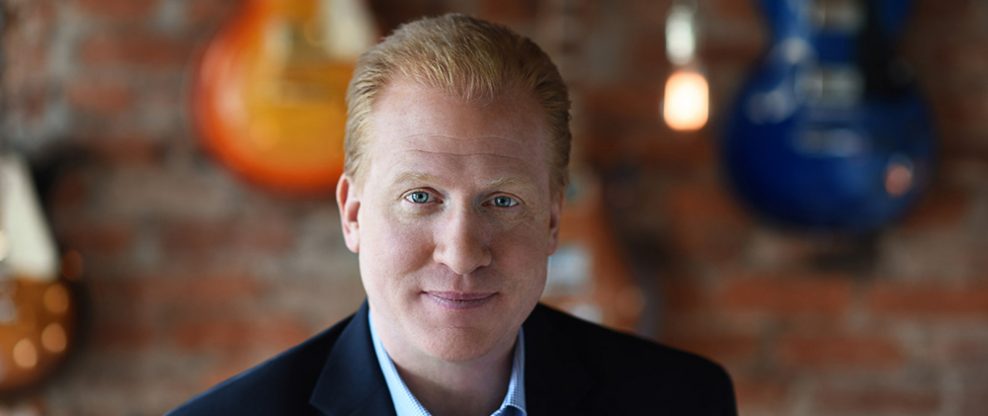(Hypebot) — “While the NAB has the right to represent its members’ interests,” writes Michael Huppe, the president and CEO of SoundExchange, “it cannot do so credibly when pushing for two hypocritical positions in two different hearings on the very same day in Congress.”
By Michael Huppe, the president and CEO of SoundExchange
Those of us fighting to have radio broadcasters compensate performing artists have long felt like Bill Murray’s character in Groundhog Day. Each morning we get up and explain that musicians deserve to be paid for use of the recordings that make up radio’s product. We point out that satellite and internet radio stations pay such royalties, and that broadcasters in most other industrialized nations pay, but that U.S. broadcasters unjustly refuse.
The National Association of Broadcasters then launches into its typical misdirection. It falsely calls such compensation a “tax” and claims the royalty would put radio stations out of business. And it argues recording artists do not deserve to be paid because the “promotional value” of airplay is enough.
The next morning our alarm wakes us to relive the same day all over again.
There’s a chance, however, that the juxtaposition of two hearings yesterday – on the actual Groundhog Day, no less- will help us skip to the happy end of the movie as music plays and the credits roll.
In a Senate Judiciary Committee hearing yesterday on the Journalism Competition and Preservation Act, the broadcasters argued that big media platforms (such as YouTube) are not paying enough when using broadcaster content to generate advertising revenue. Broadcasters pushed for legislation to grant broadcasters an antitrust exemption so they could negotiate collectively and withhold content unless online platforms pay more for journalists’ articles. In a nutshell, the NAB wants media platforms to pay more for the NAB members’ content or risk losing access to it altogether.
On the same day on other side of Capitol Hill, a different group of content creators made a similar plea before the House Judiciary Committee in support of the American Music Fairness Act (AMFA). AMFA also seeks to have big media platforms (in this case radio broadcasters) compensate creators when using their content to generate advertising revenue. Arguing in favor were supporters such as Gloria Estefan, Lawrence “Boo” Mitchell,” Dave Pomeroy, and Barry Massarsky.
But that’s where the similarities end.
“They simply asked that recording artists be granted similar copyrights as others.”
The AMFA crew didn’t ask for an antitrust exemption, like the broadcasters did. They simply asked that recording artists be granted similar copyrights as others.
They didn’t ask for more money, like the broadcasters did. They simply asked for at least some payment, since they now receive none when broadcast radio stations air their music.
They didn’t ask for special treatment, like the broadcasters did. Rather they asked that they be treated the same as all other artists around the world, and even the same as artists on virtually all other media platforms in the U.S.
And they didn’t ask for rights to negotiate and withhold content, like the broadcasters did. Under AMFA, radio stations would still be allowed to play music as they please. Artist advocates simply asked that the biggest-of-the-big stations pay a modest royalty set according to market rates. Stations making less than $1.5 million per year would pay a flat, annual royalty of $500 (less than $1.40 per day) for as much music as they choose to air. And the smallest stations’ payments would drop all the way down to $10.
No station is going to go bankrupt over these royalties. In the third quarter of 2021, alone, iHeart’s net revenues were $928 million, exceeding even their own prior estimates by approximately 20 percent. Audacy’s revenues were $329.4 million. Cumulus’s revenues were $238 million.
The NAB’s claim that these royalties are a tax is a new form of B.S.: “Broadcaster Spin.” The royalties would compensate recording artists for the billions of advertising dollars radio broadcasters make from airing music. We don’t call it a tax when freelance writers ask to be paid for stories used by newspapers. And the NAB certainly doesn’t call it a tax when it demands that social media pay writers for selling ads around broadcaster content (as it demanded yesterday). Fair music royalties are no more of a tax than these.
The NAB claims musicians should just be happy with the “promotion” radio provides. But artists can’t pay the rent with “promotion,” and this same argument apparently rings hollow when the NAB is seeking to protect its own content.
I understand the NAB’s job is to minimize costs so their members pocket more of the $10 billion the radio broadcast industry earns each year. But that money comes out of the pockets of hard-working recording artists, who represent the very foundation of what these broadcasters sell. And while the NAB has the right to represent its members’ interests, it cannot do so credibly when pushing for two hypocritical positions in two different hearings on the very same day in Congress.
At the end of the day, the NAB was pushing to get paid more for (their) content in one room, while vigorously opposing paying anything for (others) content in another room. Pretty bold – but they can’t have it both ways. What’s good for the goose is good for the gander (or in this case, the groundhog).
Broadcast radio’s inequitable opposition to paying for sound recordings must end. It is unfair to musicians and creates a competitive disparity with satellite and internet radio stations.
I note that Punxsutawney Phil saw his shadow yesterday. Let’s hope that doesn’t mean recording artists must continue to endure yet another long winter.
Michael Huppe is president and CEO of SoundExchange.

































































